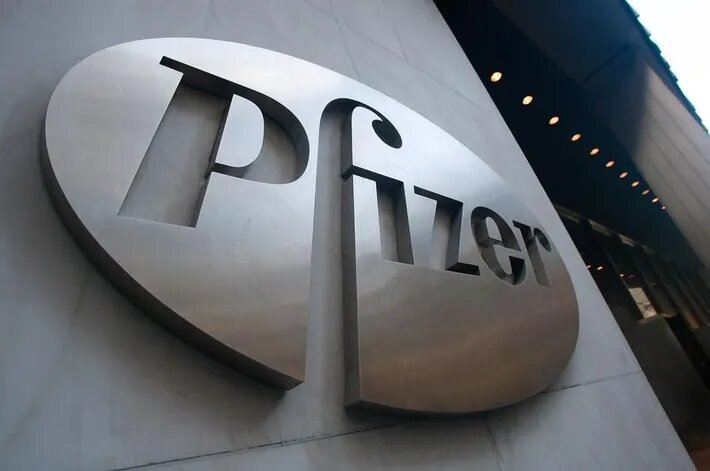Pfizer Voluntarily Withdraws Oxbryta from Worldwide Markets
Pfizer voluntarily withdraws all lots of sickle cell disease treatment Oxbryta from worldwide markets
Overview
Pfizer Inc. announced that it is voluntarily withdrawing all lots of Oxbryta (voxelotor) for the treatment of sickle cell disease (SCD) at this time, in all markets where it is approved. Pfizer is also discontinuing all active voxelotor clinical trials and expanded access programmes worldwide.
Behind the Decision
- Pfizer's decision is based on the totality of clinical data that now indicates the overall benefit of Oxbryta no longer outweighs the risk in the approved sickle cell patient population.
- The data suggest an imbalance in vaso-occlusive crises and fatal events which require further assessment.
- Pfizer has notified regulatory authorities about these findings and its decision to voluntarily withdraw Oxbryta from the market and discontinue distribution and clinical studies while further reviewing the available data and investigating the findings.
Statement from the CMO: Pfizer
- The safety and well-being of patients is of the utmost importance to Pfizer, and we believe this action is in the best interest of patients,” said Aida Habtezion, chief medical officer and head of worldwide medical and safety at Pfizer.
- Our primary concern is for patients who suffer from SCD, which remains a very serious and difficult-to-treat disease with limited treatment options. We advise patients to contact their physicians to discuss alternative treatment while we continue to investigate the findings from our review of the data.
About Sickle Cell Disease
- Sickle cell disease (SCD) is a lifelong, debilitating inherited blood disorder in which haemoglobin S polymerization leads to red blood cell sickling resulting in vascular inflammation and haemolytic anaemia.
- Vascular inflammation, together with sickled RBC’s can lead to acute pain crises, or vaso-occlusive crises, and progressive end organ damage, including stroke.
- Impacts- Complications of SCD begin in early childhood and are associated with shortened life expectancy.
- Early intervention and treatment of SCD have shown potential to modify the course of this disease, reduce symptoms and events, prevent long-term organ damage, and extend life expectancy.
Therapies for SCD in the Past
- Historically, there has been a high unmet need for therapies that address the root cause of SCD and its acute and chronic complications.
- While rare in developed markets, there are 4.5 million people living with SCD globally and more than 45 million people living with the sickle cell trait.
- SCD occurs particularly among those whose ancestors are from sub-Saharan Africa, though it also occurs in people of Hispanic, South Asian, Southern European and Middle Eastern ancestry.
About the Drug: Oxbryta
- Oxbryta (voxelotor) is an oral, once-daily therapy for patients with sickle cell disease (SCD).
- Oxbryta works by increasing haemoglobin’s affinity for oxygen.
- Oxbryta inhibits sickle haemoglobin polymerization and the resultant sickling and destruction of red blood cells leading to haemolysis and haemolytic anaemia, which are primary pathologies faced by every single person living with SCD.
Accelerated Approval by FDA
- In 2019, the US Food and Drug Administration (FDA) granted accelerated approval for Oxbryta tablets for the treatment of SCD in adults and children ages 12 years and older.
- In December 2021, the FDA expanded the approved use of Oxbryta for the treatment of SCD in patients 4 years of age and older in the US.
Priority Medicines (PRIME) designation to Oxbryta
- Oxbryta was granted Priority Medicines (PRIME) designation by the European Medicines Agency (EMA) and designated an orphan medicinal product for the treatment of patients with SCD by the European Commission (EC).
- In February 2022, the EC granted Marketing Authorization for Oxbryta for the treatment of haemolytic anaemia due to SCD in adult and paediatric patients 12 years of age and older as monotherapy or in combination with hydroxycarbamide (hydroxyurea).
- Since its first approval in 2019, Oxbryta has been approved in over 35 countries globally.

Optimize Your trial insights with Clival Database.
Are you exhausted from the uncertainty of trial insights pricing? Clival Database ensures the clarity in the midst of the global scenario for clinical trials to you.Clival Database is one of the best databases that offers an outstanding number of clinical trial data in terms of 50,000+ molecules and from primary regulatory markets as well as new entrants like Indian and Chinese markets.
With Clival, you get accurate positioning of historical sales data, patent database, company profiling, safety & efficacy, and prediction of launch of new innovative molecules helping you to align your research and driving down the cost.
To add value, we further break down our analytics for you so that improving your operational effectiveness; optimizing your clinical trials; and offering you accurate and high-quality data at lowest possible prices becomes possible.
Elevate your trial success rate with the cutting-edge insights from Clival database.
Check it out today and make more informed sourcing decisions! Learn More!







